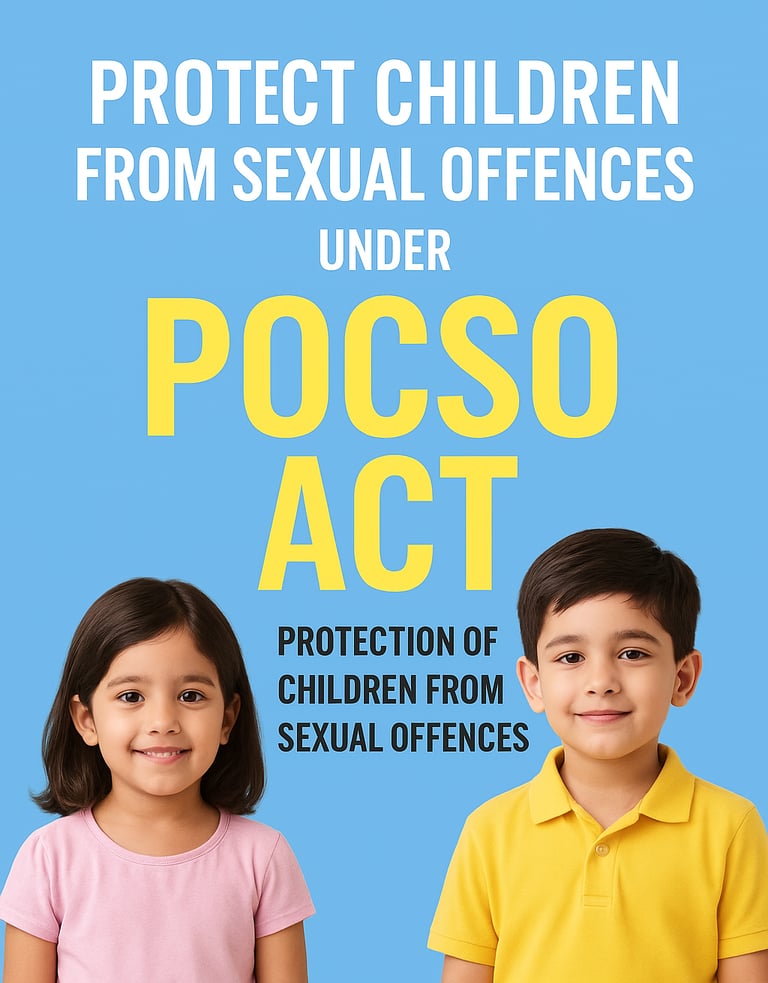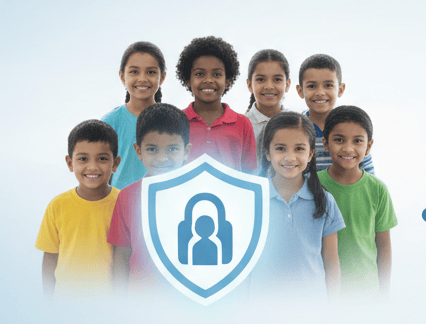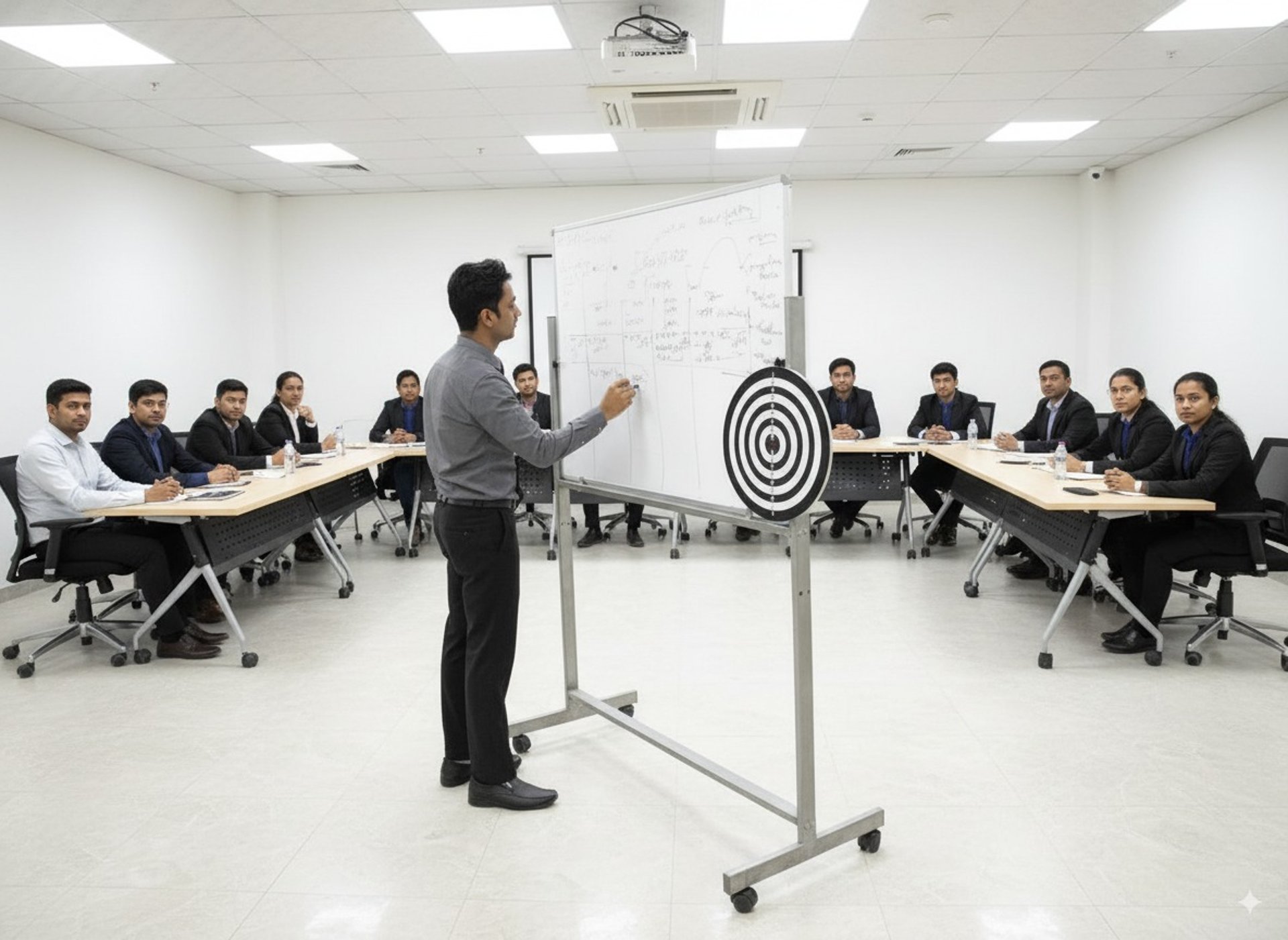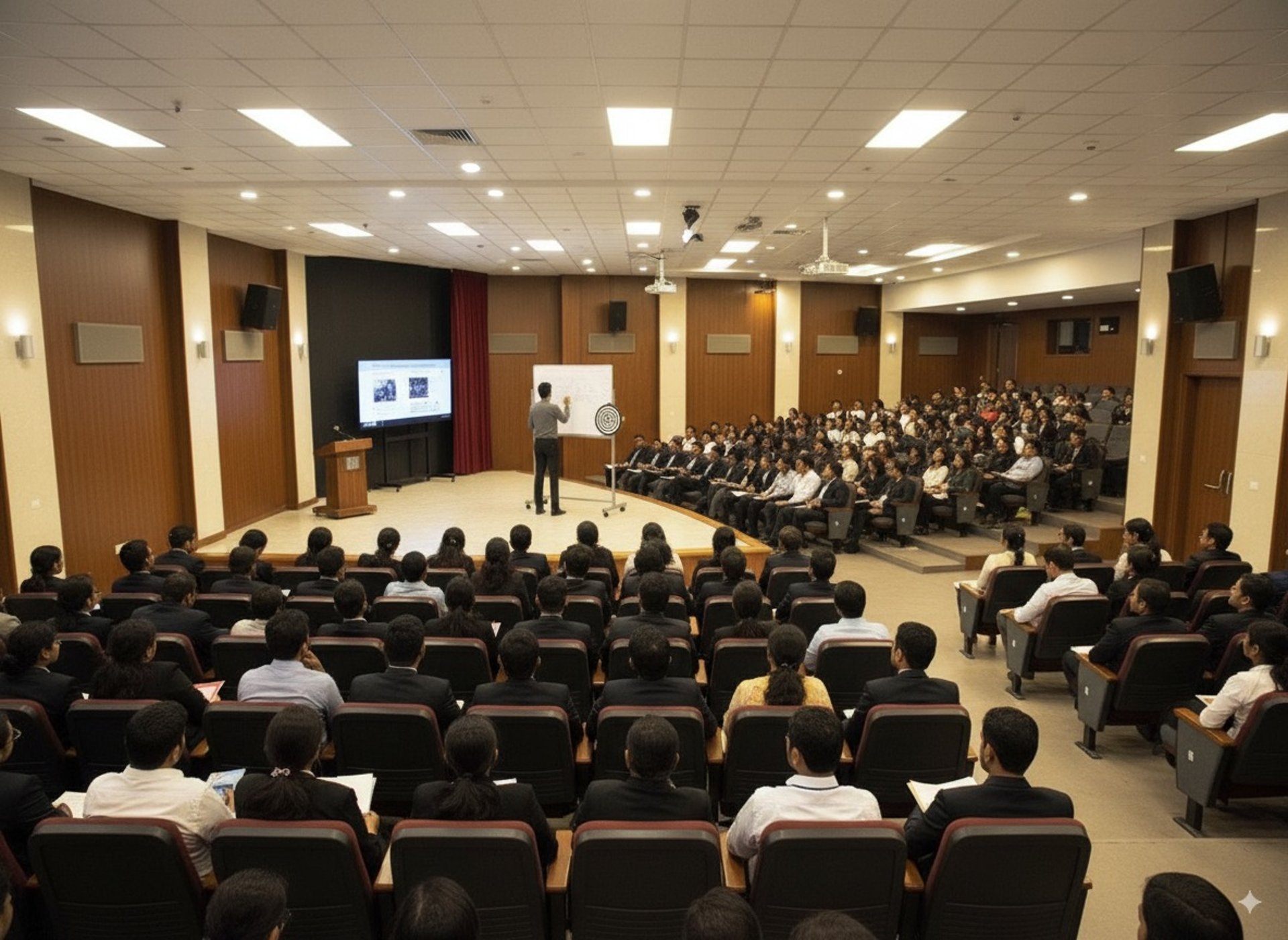PoCSO 2012 (Protection of Children from Sexual Offences Act)
Protecting Children, Creating Safe Environments


Top rated by 50+ clients
★★★★★


The Protection of Children from Sexual Offences (PoCSO) Act, 2012 was enacted to safeguard children from sexual offences through strong legal provisions, awareness, and preventive frameworks. As part of compliance and corporate social responsibility, organizations, schools, NGOs, and healthcare institutions must ensure their employees and stakeholders are trained to identify, prevent, and respond effectively to child protection concerns.
Program Overview
Our PoCSO 2012 Awareness Training equips participants with the knowledge, skills, and sensitivity required to create a child-safe environment. The session focuses on legal requirements, reporting mechanisms, and preventive measures, while instilling responsibility and accountability across all stakeholders.
Program Details
Duration: 1.5 – 3 Hours (customizable)
Mode: Audio-Visual Module + Trainer Facilitation
Target Audience: Educators, Caregivers, Healthcare Professionals, HR Teams, Child Protection Authorities, NGO Workers
Why This Program?
Creating a safe environment for children is a shared responsibility. This training helps individuals and organizations to:
Understand the legal mandate under PoCSO, 2012.
Build awareness to prevent, identify, and act on potential risks.
Protect organizational reputation by ensuring compliance.
Empower employees, caregivers, and stakeholders with the confidence to respond effectively.

Program Highlights
Introduction to PoCSO Act, 2012 and its objectives.
Understanding child sexual offences and categories under the Act.
Roles & responsibilities of schools, institutions, and organizations.
Complaint & redressal mechanisms – how to report, when, and to whom.
Rights of the child and safeguarding procedures.
Preventive and safety measures to ensure a child-protective environment.
Consequences of non-compliance and accountability under the law.


Get a Proposal
Share your email address for proposal.
Legal Reasons to Conduct POCSO Awareness Sessions
Mandatory Compliance under PoCSO Act, 2012
Organizations, schools, NGOs, and institutions dealing with children must comply with the provisions of the Act to ensure a child-safe environment.
Section 19 – Mandatory Reporting of Offences
Any person (including staff) who has knowledge of an offence against a child is legally bound to report it. Failure to report may result in punishment.
Section 21 – Penalty for Non-Reporting
Individuals and institutions failing to report offences can face legal consequences, including fines and imprisonment.
Institutional Accountability
Schools, hostels, care homes, NGOs, and corporates working with children are accountable for child safety and can face action for lapses.
Employer’s Responsibility
It is the duty of employers and management to create awareness, train employees, and establish mechanisms for safeguarding children.
Protection of Organizational Reputation
Legal non-compliance can lead to litigation, penalties, and reputational damage, making awareness sessions essential for risk management.
Alignment with National Child Protection Frameworks
Awareness sessions align organizations with broader child protection mandates under Juvenile Justice Act, RTE Act, and National Commission for Protection of Child Rights (NCPCR) guidelines.
“Compliance with Care, Respect at Work.”
The PoCSO Act, 2012 session is important as it creates awareness about child safety laws, empowers children and adults to recognize and prevent abuse, explains mandatory reporting duties, and builds a safe, accountable environment where every child’s rights are protected.

Get in touch
“Give InspireX a chance to serve, and we’ll give your people the inspiration, clarity, and capability to rise higher.”
REACH US
+91-8920-957-521
© 2025. All rights reserved by InspireX Learning Solutions
OUR MAJOR OFFERINGS
QUICK LINKS
Business Communication Skills
Presentation & Public Speaking Skills
Customer Service Excellence
Cross-Cultural Communication
Time Management & Prioritization
Negotiation & Persuasion Skills
Effective Meeting Management
Business Writing (Reports, Proposals, Memos)
Storytelling for Business Impact
Email Writing for Sales & Customer Relations
Communication for Leaders & Managers
Active Listening & Empathy
Problem-Solving & Decision Making
Teamwork & Collaboration Skills
Accountability & Ownership at Work
Building Leadership Behaviors
Conflict Resolution & Anger Management
Critical Thinking in Daily Work
Stress Resilience for High-Pressure Jobs (manufacturing/retail)
Safety Mindset & Responsible Behavior (manufacturing-specific)
Goal Setting & Achievement Mindset
Execution Excellence
Emotional Intelligence at Work
Adaptability & Resilience Training
Positive Attitude & Mindset at Work
Stress Management & Work-Life Balance
Developing Self-Motivation & Initiative
Building Trust & Transparency
Urbtech Trade Center Gautam Budhha Nagar, Sector 132, UP


